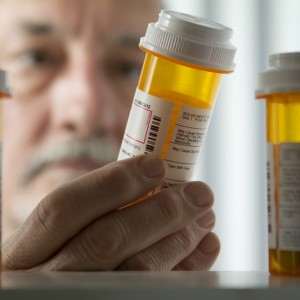ALS Patients Advocate for “Right to Try” Experimental Drug
Written by |

 Patients who suffer from amyotrophic lateral sclerosis (ALS) are joining efforts in new ways to support the approval of legislation known as the “Right to Try” law. After a series of online forums and petitions, an ALS patient was granted an audience at Capitol Hill to read a letter about their need to explore every option — including experimental therapies — available to reduce the burden of the life-threatening disease for which there is no cure.
Patients who suffer from amyotrophic lateral sclerosis (ALS) are joining efforts in new ways to support the approval of legislation known as the “Right to Try” law. After a series of online forums and petitions, an ALS patient was granted an audience at Capitol Hill to read a letter about their need to explore every option — including experimental therapies — available to reduce the burden of the life-threatening disease for which there is no cure.
David Huntley is a scientist and was a triathlete that completed Ironman New Zealand and the Boston Marathon in 2011, but due to the disease he is now in a wheelchair and cannot speak nor travel. However, he shared a common opinion among ALS patients with a letter that was read by his wife, Linda Clark, at a rally on Capitol Hill.
In particular, the patient was advocating for the right to have access to a drug treatment that has only been studied in an early stage trial, called GM604, which was developed by biopharmaceutical company Genervon. The drug was evaluated in 12 patients and revealed statistically significant, very robust and dramatic outcomes, according to the company.
Due to the results, Genervon submitted the drug to the U.S. Food and Drug Administration (FDA) requesting accelerated approval, which is a status provided to promising therapies able to treat severe and life-threatening conditions that allows them to be commercialized without the need for expensive and large-scale efficacy studies.
“Why would anyone oppose it?” Huntley asked in the letter. “This disease is evil. It doesn’t just kill you; it takes away everything that you care about, one at a time, then it kills you. Tell me how some as-yet-to-be-detected side effect is going to degrade my quality of life?”
The last and only time that the FDA approved a drug to treat ALS was 20 years ago, and it does no more than prolong patients’ lives for a few months. The disease affects the motor neurons of the human body, and consequently incapacitates patients from properly swallowing or breathing. Therefore, patients, families and advocates have been supporting research working to find more effective treatment.
David Huntley’s call for help came after an online petition on Change.org that gathered over half-million signatures supporting the right to try. However, the ALS community is also concerned about the methods being undertaken by biopharmaceutical companies, saying that accelerating the process must the accompanied with a way of preventing companies from commercializing ineffective drugs.
The ALS community and Genervon are now waiting for the final decision from the FDA, which may determine the treatment of thousands of patients. If denied the accelerated approval, Genervon will have to test the drug for several years in order to submit it to the administration again. A group of advocates already announced that was going to organize another rally in Washington on May 11.





